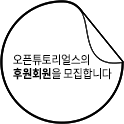-시- is used for more honorific to the subject of the verb. Usually request or question to other person. Not object or concept.
- 이에요 + -시- => 이시에요 => 이세요.
- Absurd 저는 김태희세요. I am taehee kim.
- Natural 이 사람은 제 친구에요. This is my friend.
- 이 사람 = this person, 저 사람 = that person, 그 사람 = the person.
- Natual More honorific 이 분은 제 아버지세요. This is my father.
- 아버지 father <= 아빠's honoriffic = dad
- Natual More honorific 사장님은 베트남 분이세요. The boss is Vietnamese.
- ~ 분 = ~ 사람's honorific.
- Natual More honorific 혹시... 사막여우님이세요? May... Are you the desert fox?
- 사막 = desert, 여우 = fox. In the context, It is the one's nickname on internet.
- 혹시 may, any chance
- 해요 + -시- => 해시요 => 하세요.
- Absurd 저는 고아원에서 봉사하세요. I volunteer at an orphanage
- 고아 orphan, 고아원 orphanage
- 봉사하다 = serve, volunteer
- Natural More honorific 와, 주말마다 봉사하세요? wow, You volunteer every weekend?
- ~마다 = every ~
- Natural More honorific 좋은 하루 되세요! Have a nice day!
- 하루 = a day
- Natural More honorific 천천히 드세요. Take your time (Eat slowly)
- 천천히 = slowly, 빨리 = fast
- 드세요. <= 먹어요's honoriffic.
- Absurd 저는 고아원에서 봉사하세요. I volunteer at an orphanage
Korean also use -시- with '합니다' style.
- 합니다 + -시- => 하십니다.
- Absurd 저는 사쿠라 씨를 사랑하십니다.
- Natual More honorific 신께서는 여러분을 사랑하십니다. The God loves you.
- Natual More honorific 대통령님께서 입장하십니다. The president is entering.
- ~께서 = more honorific for subject.
- 입장하다 <= 들어오다's more honorific
- 입니다 + -시- => 이십니다.
- Absurd 태극기는 한국의 국기이십니다.
- 태극기 korea's flag. Koreans respect it, But It is not human.
- Natual More honorific 야부키씨는 제 롤 모델이십니다. (You are / She is) my role model. (in formal Business meeting)
- Natual More honorific 제 어머님은 요리사이십니다. My mother is a chef. (In the past, in a student's presentation.)
- 어머님 <= 어머니 mother +님 <= 엄마's honoriffic = mom
- 요리사 chef
- Absurd 태극기는 한국의 국기이십니다.


